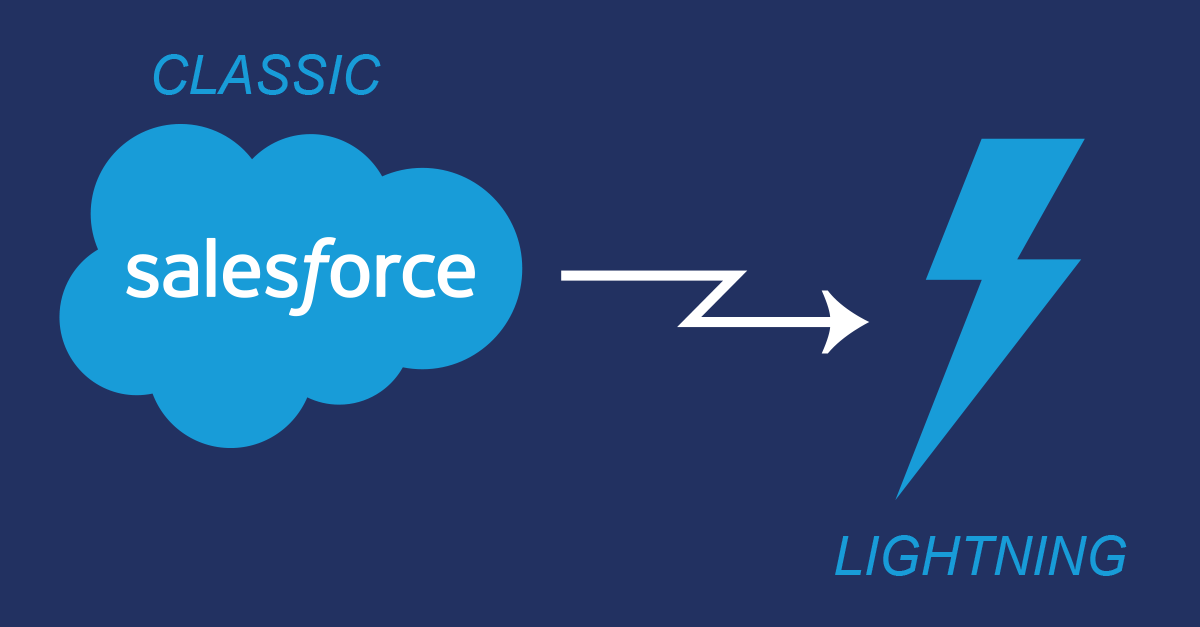What is the salesforce CRM?
Salesforce CRM (Sales Cloud) is a cloud-based customer relationship management (CRM) platform that allows businesses to manage their interactions with customers and prospects. It provides a centralized system for managing sales, customer service, marketing, and other business operations, with features such as lead and opportunity management, sales forecasting, customer support, and analytics. Salesforce CRM is highly customizable and can be tailored to meet the specific needs of different industries and business models. It is widely used by businesses of all sizes, from small startups to large enterprises, across a variety of industries. Because Salesforce is incredibly scalable and has incorporated many key business solutions in addition to Sales Cloud, it is perfectly suited to grow with companies as they move from small business towards the enterprise.
How is Salesforce different from other CRMs?
Salesforce differs from other CRMs in several ways:
- Cloud-based: Salesforce is a cloud-based platform, which means that it can be accessed from anywhere with an internet connection. This makes it highly scalable and accessible, compared to on-premise CRMs that require local installation.
- Customization: Salesforce is highly customizable, allowing businesses to create custom workflows, reports, and dashboards that fit their unique needs. This is in contrast to some other CRMs that may have limited customization options.
- Integration: Salesforce integrates with a wide range of other applications and systems, such as email, social media, and marketing automation tools. This allows businesses to streamline their processes and gain a holistic view of their customers and prospects.
- Mobile-friendly: Salesforce has a mobile app that enables users to access the platform from their mobile devices. This is especially important for sales and service teams that may need to access customer information while on the go.
- Community: Salesforce has a large and active user community that shares knowledge, best practices, and resources. This community can be a valuable resource for businesses looking to get the most out of their CRM.
- AppExchange: Salesforce has a large array of third party solutions in the AppExchange store which provide functionality above and beyond what businesses receive out of the box. Chances are high that if a business has additional needs outside of the Salesforce core capabilities, someone has already built it and made it an app you can add to Salesforce.
Overall, Salesforce’s combination of cloud-based technology, customization options, integration capabilities, mobile-friendliness, and community make it a popular choice for businesses of all sizes and industries.
Is Salesforce just a CRM tool?
No, Salesforce is not just a CRM tool. While Salesforce is primarily known for its CRM capabilities, it offers a wide range of other products and services that go beyond traditional CRM functionality. For example, Salesforce offers solutions for marketing automation, e-commerce, community management, analytics, and more. These products can be integrated with Salesforce’s CRM platform to provide a more comprehensive solution for businesses. Additionally, Salesforce has a robust app marketplace called the AppExchange, which offers a wide range of third-party applications that can be used to extend the platform’s capabilities even further. Overall, Salesforce is a comprehensive cloud-based platform that can be customized to meet the needs of different industries and business models. While it is primarily known for its CRM capabilities, it offers a wide range of other products and services that can help businesses streamline their operations and improve their customer experience.
What is the list of features of Salesforce CRM?
Salesforce CRM offers a wide range of features designed to help businesses manage their sales, marketing, customer service, and other business processes. Some of the key features of Salesforce CRM include:
- Lead and opportunity management
- Account and contact management
- Sales forecasting
- Sales collaboration and automation
- Marketing automation and campaign management
- Email integration and tracking
- Customer support and case management
- Service level agreements (SLAs)
- Knowledge management
- Reporting and analytics
- Mobile access
- Customizable dashboards and workflows
- Collaboration and productivity tools
- Integration with third-party applications and systems
- AI-powered insights and recommendations
These are just some of the many features that Salesforce CRM offers. Depending on the specific needs of a business, they may utilize some or all of these features, as well as additional features available through the Salesforce AppExchange.
What type of CRM is Salesforce?
Salesforce is a cloud-based, multi-tenant CRM platform. It is designed to help businesses manage their customer relationships across sales, marketing, customer service, and other business operations. As a cloud-based platform, Salesforce is accessed through a web browser or mobile app, and data is stored on servers maintained by Salesforce. This allows for easy scalability and accessibility, as well as automatic updates and maintenance. As a multi-tenant platform, Salesforce allows multiple organizations to share the same infrastructure and resources, while maintaining their own data and security. This allows Salesforce to offer a cost-effective solution that can be customized to meet the specific needs of different businesses. Overall, Salesforce is a highly flexible and customizable CRM platform that can be tailored to meet the needs of businesses of all sizes and industries.
What percentage of big companies use Salesforce?
Salesforce CRM is used by a large number of big companies. According to Salesforce’s website, more than 150,000 companies of all sizes and industries use Salesforce CRM, including many Fortune 500 companies. While there is no exact percentage of big companies that use Salesforce, it is safe to say that a significant number of them do. Salesforce is particularly popular among large enterprises that require a scalable, customizable, and cloud-based CRM solution. This includes companies in a wide range of industries, such as financial services, healthcare, manufacturing, retail, and more. Some examples of big companies that use Salesforce CRM include Coca-Cola, T-Mobile, American Express, Toyota, Home Depot, and Unilever, to name just a few.
What are the benefits of Salesforce CRM integration?
Integrating Salesforce CRM with other systems or applications can offer a wide range of benefits for businesses, including:
- Increased efficiency: Integrating Salesforce with other systems can eliminate manual data entry and reduce the need for duplicate data entry, saving time and reducing errors.
- Improved data accuracy: Integrating Salesforce with other systems can help ensure that data is consistent and accurate across all systems, leading to better decision-making.
- Better customer insights: Integrating Salesforce with other systems can provide a more holistic view of customers and prospects, allowing businesses to better understand their needs and preferences.
- Streamlined processes: Integrating Salesforce with other systems can automate processes and workflows, improving efficiency and reducing the risk of errors.
- Cost savings: Integrating Salesforce with other systems can eliminate the need for separate systems and reduce the cost of maintaining multiple systems.
- Improved collaboration: Integrating Salesforce with other systems can improve collaboration across teams and departments, leading to better communication and alignment.
Overall, integrating Salesforce CRM with other systems or applications can help businesses streamline their operations, improve data accuracy and insights, and ultimately provide a better customer experience.
What are services provided by Salesforce CRM?
Salesforce CRM provides a wide range of services designed to help businesses manage their customer relationships and improve their operations. Some of the key services provided by Salesforce CRM include: Sales Cloud: A comprehensive sales management solution that helps businesses manage their sales processes, including lead and opportunity management, sales forecasting, collaboration and automation, and more. Service Cloud: A customer service management solution that helps businesses provide personalized, responsive service across multiple channels, including phone, email, social media, and more. Marketing Cloud: A marketing automation solution that helps businesses create and manage targeted campaigns across multiple channels, including email, mobile, social media, and advertising. Commerce Cloud: An e-commerce solution that helps businesses create personalized, responsive online shopping experiences across web, mobile, and social channels. Community Cloud: A solution that helps businesses build online communities where customers, partners, and employees can connect, collaborate, and share information. Analytics Cloud: A solution that provides businesses with advanced analytics capabilities, including data visualization, predictive analytics, and machine learning. AppExchange: An online marketplace where businesses can find and install third-party applications that extend the functionality of Salesforce CRM and integrate with other systems. Salesforce CMS: A Content Management Solution (CMS) for websites built directly on the Salesforce platform. Leveraging the Salesforce CMS allows for fast and easy integration directly with your customer and other key data. These are just some of the many services provided by Salesforce CRM. Depending on the specific needs of a business, they may utilize some or all of these services, as well as additional services available through the Salesforce AppExchange.
What is the best way to learn Salesforce CRM?
There are several ways to learn Salesforce CRM, depending on your learning style and level of experience. Here are a few options: Trailhead: Salesforce’s free, interactive learning platform offers a wide range of guided learning paths and modules on various topics related to Salesforce CRM, including sales, marketing, service, and administration. Trailhead also offers interactive challenges and hands-on exercises to help you apply what you’ve learned. Salesforce certifications: Salesforce offers a variety of certifications for professionals who work with the Salesforce platform, including developers, administrators, architects, and consultants. Earning a certification requires passing an exam that tests your knowledge and skills related to a specific aspect of Salesforce CRM. Online courses: There are many online courses available that cover various aspects of Salesforce CRM, ranging from beginner-level introductions to more advanced topics. Sites like Udemy, LinkedIn Learning, and Pluralsight offer a wide range of courses that cater to different learning styles and preferences. User groups and events: Salesforce has a large and active user community, with many local user groups and events where professionals can network, share knowledge, and learn from one another. Attending user groups and events can be a great way to connect with other Salesforce professionals and learn about best practices and new trends. Ultimately, the best way to learn Salesforce CRM will depend on your individual needs and preferences. It may be helpful to try a few different learning methods to find what works best for you.
How effective is Salesforce CRM for small businesses?
Salesforce CRM can be an effective solution for small businesses, depending on their specific needs and resources. Here are a few factors to consider: Customizability: Salesforce CRM is highly customizable, which means that businesses can tailor the platform to their specific needs and workflows. This can be especially beneficial for small businesses that have unique requirements that may not be met by off-the-shelf CRM solutions. Scalability: Salesforce CRM is designed to grow and scale businesses, which means that small businesses can start with a basic plan and add functionality as they grow and their needs change. Access to data: Salesforce CRM provides businesses with a central repository for customer data, which can be accessed by anyone in the organization with the appropriate permissions. This can be especially helpful for small businesses that have limited resources and need to maximize their efficiency. Cost: While Salesforce CRM can be expensive, particularly for small businesses, there are a range of pricing options available, including plans designed to be cost effective for small businesses. Depending on the specific needs of a business, the cost of implementing Salesforce CRM may be outweighed by the benefits it provides. Expect to pay between $25 – $300 per user, per month. If you require API integrations you’ll have to pay an additional $25 per user per month or if your business has a need for a good amount of field customization you may need to go with a higher plan. Overall, while Salesforce CRM may not be the best fit for every small business, it can be an effective solution for those that have specific needs that can be met by the platform and are willing to invest the time and resources necessary to implement and manage it effectively.
Is Salesforce a great tool for a small sales team?
Salesforce can be a great tool for a small sales team, as it provides a wide range of features and functionality designed to help businesses manage their sales processes more effectively. Here are a few reasons why Salesforce can be a good fit for small sales teams: Centralized customer data: Salesforce provides businesses with a central repository for customer data, which can be accessed by anyone on the sales team with the appropriate permissions. This can help small sales teams stay organized and ensure that everyone has access to the information they need to close deals. Automation: Salesforce includes a variety of automation tools, including lead and opportunity management, which can help small sales teams streamline their processes and focus their efforts on the most promising leads. Collaboration: Salesforce includes collaboration features that allow team members to share information and work together more effectively. This can be especially helpful for small sales teams that may not have dedicated resources for marketing, customer service, or other functions. Customizability: Salesforce is highly customizable, which means that small sales teams can tailor the platform to their specific needs and workflows. This can be especially beneficial for small businesses that have unique requirements that may not be met by off-the-shelf CRM solutions. While there may be other CRM options available that are better suited to the specific needs of a small sales team, Salesforce can be an effective tool for businesses that are willing to invest the time and resources necessary to implement and manage it effectively.
Which is the best customer portal for Salesforce CRM?
Salesforce provides a range of customer portal options, depending on the specific needs of your business. Here are a few options to consider: Salesforce Community Cloud: Community Cloud is a customer portal solution that allows businesses to create branded online communities where customers can interact with each other and with your business. Community Cloud includes a range of features, such as discussion forums, knowledge bases, and case management tools. Salesforce Customer Portal: Customer Portal is a more traditional customer portal solution that allows businesses to provide customers with access to support resources and self-service options. Customer Portal includes features such as case management, knowledge bases, and online forums. (see user guide) Salesforce Partner Community: Partner Community is designed for businesses that work with channel partners, resellers, or distributors. Partner Community allows you to provide partners with access to sales and marketing materials, support resources, and collaboration tools. The best customer portal for your Salesforce CRM will depend on the specific needs of your business and your customers. You may want to consider factors such as the types of support resources you need to provide, the level of collaboration you want to enable, and the branding and customization options available with each solution.
Which is better: Zoho or Salesforce?
Deciding between Zoho and Salesforce will depend on the specific needs and priorities of your business. Here are a few factors to consider: Features: Salesforce offers a wider range of features and functionality than Zoho, particularly when it comes to enterprise-level capabilities such as advanced analytics, artificial intelligence, and integrations with other systems. Customization: Both Salesforce and Zoho offer a high degree of customization, but Salesforce is considered more flexible and scalable, particularly for larger businesses with complex workflows and requirements. Cost: Zoho is less expensive than Salesforce, particularly for businesses with smaller sales teams or less complex requirements. However, the total cost of ownership may vary depending on the specific features and functionality needed. User experience: Zoho is generally considered to have a simpler and more intuitive user interface than Salesforce when it comes to configuring the platforms, which may make it a better option for businesses with less technical expertise or smaller teams. They are equivalent with ease of use for your common users. With this simplicity comes limitation, Salesforce just allows you to do more when it comes to growing your business. Support: Both Salesforce and Zoho offer a range of support options, including online resources, forums, and customer service. However, Salesforce has a more robust support ecosystem, particularly for larger businesses with complex requirements. The decision between Zoho and Salesforce will depend on a variety of factors, including your budget, your business needs, and your specific requirements for CRM functionality. It may be helpful to compare the features and pricing of each solution, user reviews and case studies, to make an informed decision. If budget is your biggest concern, then Zoho is a more affordable option, but that’s where the comparison ends. In every other measure, Salesforce is a superior platform to Zoho. If your business is looking for a platform that it can grow with, leverage a large support and app community for current and unknown future business needs, and provides the most bang for your buck, there’s no contest with Salesforce.
Is there any affordable alternative to Salesforce?
Yes, there are several affordable alternatives to Salesforce that may be suitable for businesses with smaller budgets or simpler requirements. Here are a few options to consider: HubSpot CRM: HubSpot CRM is a free, cloud-based CRM solution that includes a range of features such as contact management, deal tracking, and sales pipeline management. HubSpot also offers a range of paid add-ons and integrations for businesses with more advanced requirements. Zoho CRM: Zoho CRM is a cloud-based CRM solution that includes features such as contact management, lead scoring, and sales automation. Zoho offers a range of pricing plans to suit businesses of different sizes and requirements. Freshworks CRM: Freshworks CRM is a cloud-based CRM solution that includes features such as lead management, pipeline management, and contact management. Freshworks offers a range of pricing plans, including a free plan for businesses with up to 10 users. Insightly: Insightly is a cloud-based CRM solution that includes features such as contact management, project management, and sales automation. Insightly offers a range of pricing plans to suit businesses of different sizes and requirements. Pipedrive: Pipedrive is a cloud-based CRM solution that includes features such as contact management, deal tracking, and sales automation. Pipedrive offers a range of pricing plans, including a free trial and a basic plan for businesses with simpler requirements. SugarCRM: SugarCRM is a cloud-based CRM solution that includes features such as contact management, sales automation, and marketing automation. SugarCRM offers a range of pricing plans to suit businesses of different sizes and requirements. Agile CRM: Agile CRM is a cloud-based CRM solution that includes features such as contact management, deal tracking, and sales automation. Agile CRM offers a range of pricing plans, including a free plan for businesses with up to 10 users. Capsule CRM: Capsule CRM is a cloud-based CRM solution that includes features such as contact management, sales automation, and task management. Capsule CRM offers a range of pricing plans, including a free plan for businesses with up to 2 users. Bitrix24: Bitrix24 is a cloud-based CRM solution that includes features such as contact management, project management, and sales automation. Bitrix24 offers a range of pricing plans, including a free plan for businesses with up to 12 users. Again, we encourage you to analyze the specific needs and priorities of your business, as well as your budget and the features you require. It may be helpful to compare the features and pricing of each solution, user reviews and case studies, to make an informed decision.
Is Salesforce an ERP or CRM?
Salesforce is primarily a customer relationship management (CRM) platform, although it does offer some ERP (enterprise resource planning) capabilities such as inventory management, order management, and financial management through its various cloud-based products and solutions. However, its core functionality is focused on managing customer interactions, sales processes, and marketing campaigns, making it a leading CRM solution used by businesses of all sizes and industries.
Does Salesforce offer the best CRM?
Whether or not Salesforce offers the best CRM solution is subjective and depends on the specific needs and priorities of each business. Salesforce is a market leader in the CRM space and is known for its wide range of features and capabilities, as well as its strong ecosystem of third-party apps and integrations. However, there are many other CRM solutions available that may better suit the needs and budget of certain businesses. It’s important to carefully evaluate different CRM options based on factors such as functionality, ease of use, scalability, customer support, and cost, and to choose the solution that best fits your business requirements.
Why is Salesforce the ‘gold standard’ for CRM?
Salesforce is often referred to as the “gold standard” for CRM due to several reasons: Comprehensive and Customizable: Salesforce offers a wide range of CRM features, including contact management, lead generation, sales automation, marketing automation, analytics, and customer service. It also offers a highly customizable platform that can be tailored to meet the specific needs of each business. Cloud-Based: Salesforce is a cloud-based platform, meaning that it can be accessed from anywhere with an internet connection. This makes it highly flexible and allows businesses to scale their CRM solution as their needs change. Third-Party App Ecosystem: Salesforce has a vast ecosystem of third-party apps and integrations that can be used to extend the functionality of the platform. This allows businesses to integrate their CRM with other tools and systems they may be using, such as marketing automation or e-commerce platforms. User-Friendly: Salesforce has a user-friendly interface and provides extensive training resources, making it easy for businesses to onboard their team members and get up and running quickly. Strong Customer Support: Salesforce provides excellent customer support through a range of channels, including phone, email, and chat support, as well as an extensive knowledge base and online community. Overall, Salesforce’s combination of comprehensive CRM features, cloud-based architecture, third-party app ecosystem, user-friendliness, and strong customer support have made it a leader in the CRM space and the “gold standard” for many businesses.
Who are Salesforces closest competitors?
Salesforce has several competitors in the CRM space, including: Microsoft Dynamics 365: Microsoft’s cloud-based CRM platform that offers similar functionality to Salesforce, including sales automation, marketing automation, customer service, and analytics. HubSpot CRM: A free, cloud-based CRM platform that is targeted towards small businesses and offers features such as contact management, lead generation, sales automation, and marketing automation. Zoho CRM: A cloud-based CRM platform that offers similar features to Salesforce, including lead and contact management, sales automation, marketing automation, and customer service. Oracle CRM: Oracle’s cloud-based CRM platform that offers a wide range of CRM features, including sales automation, marketing automation, customer service, and analytics. SAP CRM: SAP’s CRM platform that offers a range of CRM features, including sales automation, marketing automation, and customer service. Each of these competitors has its own strengths and weaknesses and may be a better fit for certain businesses depending on their specific needs and requirements. Is it easy to learn Salesforce?
The ease of learning Salesforce depends on several factors, including the individual’s background and experience with technology, their familiarity with CRM concepts, and their learning style. However, Salesforce offers a variety of resources to help individuals learn the platform, including: Trailhead: Salesforce’s free online learning platform, which provides interactive tutorials and modules for users to learn at their own pace. Online Communities: Salesforce has a large and active online community of users and experts who share tips, advice, and best practices. Training Courses: Salesforce offers a range of paid training courses, both online and in-person, for individuals and businesses looking for more structured and comprehensive training. Documentation: Salesforce provides extensive documentation and user guides for each of its products, making it easy for users to find the information they need. Overall, while there may be a learning curve for some individuals, Salesforce provides ample resources and support to help users learn the platform quickly and effectively. When it comes to learning Salesforce, there are several factors which an organization must consider, integration needs, customization requirements, which departments will use Salesforce, and the amount of support they will need. We have seen customers manage their Salesforce technical needs in several ways. - For smaller companies designating a Salesforce Super User: This person is usually a more technically focused individual that can learn the platform, perform the required basic admin functions, and support needs for the company.
- For mid-size companies leveraging a Managed Support Provider (MSP) for Salesforce, an internal resource which has specialized in Salesforce Administration or Development, or a combination of both: Using an 3rd party MSP or combination of internal resources and external providers is a cost-effective way to manage your Salesforce support needs. Especially if the company finds they are experiencing a lot of surge support/enhancement requests. Having a MSP will allow the company to surge support as necessary without incurring all the expenses that come with a full-time employee.
- For Enterprise organizations: Salesforce support will usually encompass a team of employees who specialize in Salesforce in addition to overflow support from a Salesforce MSP or Professional Services company.
How does Salesforce measure effectiveness?
Salesforce measures effectiveness through various metrics and KPIs (Key Performance Indicators) that are tailored to specific business goals and objectives. Some common metrics used to measure the effectiveness of Salesforce include: Lead Conversion Rates: Measures the percentage of leads that are converted into paying customers. Sales Pipeline Velocity: Measures the speed at which leads move through the sales process. Customer Retention Rates: Measures the percentage of customers who continue to do business with the company over time. Customer Satisfaction: Measures how satisfied customers are with the products or services they receive. Revenue Growth: Measures overall revenue growth over a specific period. Marketing ROI: Measures the return on investment for marketing campaigns. Support Response Time: Measures how quickly customer support requests are resolved. By tracking these metrics, Salesforce can assess the effectiveness of its products and services and make adjustments to improve performance and better meet the needs of its customers.
What types of companies utilize Salesforce’s CRM software?
Salesforce’s CRM software is utilized by companies of all sizes and industries. The platform’s versatility and scalability make it suitable for businesses ranging from small startups to large enterprises. Some examples of industries that commonly use Salesforce include: Many tech companies use Salesforce to manage their sales and customer relationships, including software, hardware, and telecommunications companies. Banks, insurance companies, and investment firms use Salesforce to manage their customer relationships, track leads, and analyze data. Hospitals, clinics, and other healthcare organizations use Salesforce to manage patient relationships, track patient data, and coordinate care. Retail companies use Salesforce to manage customer data, track sales, and improve marketing efforts. Manufacturing companies use Salesforce to manage customer relationships, track leads, and analyze data related to production and sales. Overall, any business that needs to manage customer relationships, track sales, and analyze data can benefit from utilizing Salesforce’s CRM software.
Can Salesforce CRM software be used for any industry?
Yes, Salesforce CRM software can be used for any industry. The platform is highly customizable and can be tailored to meet the specific needs of any business, regardless of industry or size. Salesforce’s CRM software is designed to help businesses manage customer relationships, track sales, and analyze data, which are needs that are common across all industries. Additionally, Salesforce offers industry-specific solutions and applications that can be integrated with its CRM software to provide even more specialized support. Some examples of industries that Salesforce serves include technology, financial services, healthcare, retail, manufacturing, and more. Ultimately, the flexibility and versatility of Salesforce’s CRM software make it a viable option for any business seeking to improve its customer relationships and sales processes.
What is the best CRM: Salesforce or Microsoft Dynamics?
There is no definitive answer to whether Salesforce or Microsoft Dynamics is the best CRM, as both platforms have their strengths and weaknesses, and the choice depends on the specific needs of the business. Salesforce is widely recognized as the market leader in CRM software, with a broad range of features and applications, extensive third-party integrations, and a large and active user community. It is also known for its cloud-based architecture, which allows users to access their data from anywhere and on any device. Salesforce’s CRM software is highly customizable and can be tailored to meet the specific needs of any business, regardless of industry or size. Microsoft Dynamics, on the other hand, is a powerful and feature-rich CRM platform that is well-integrated with Microsoft’s other business applications, such as Office 365, Power BI, and SharePoint. It offers robust reporting and analytics capabilities, advanced marketing automation features, and an intuitive user interface. Microsoft Dynamics is also known for its scalability and flexibility, making it a suitable option for businesses of all sizes and industries. The choice between Salesforce and Microsoft Dynamics depends on the specific needs and priorities of the business, such as budget, customization requirements, integration needs, and user preferences. It is recommended to evaluate both platforms and compare their features, capabilities, and pricing before deciding.
How does Oracle CRM compare to Salesforce?
Oracle CRM and Salesforce are two of the leading CRM platforms in the market, and both have their strengths and weaknesses. Here are some comparisons: Functionality: Both Oracle CRM and Salesforce offer a broad range of features, including sales automation, marketing automation, customer service, and analytics. However, Salesforce is known for its extensive third-party integrations, which allow users to connect to a wide range of applications and services, while Oracle CRM offers a more integrated suite of applications that are tightly coupled with Oracle’s other business applications. Ease of use: Salesforce is known for its intuitive user interface and ease of use, while Oracle CRM has a steeper learning curve and may require more training for new users. Customization: Both platforms offer high levels of customization, with Salesforce’s CRM software being highly customizable and can be tailored to meet the specific needs of any business, while Oracle CRM’s customization options are more limited but can be easier to manage. Pricing: Salesforce’s pricing model is based on a per-user per-month subscription fee, while Oracle CRM’s pricing varies depending on the specific modules and features required. Customer support: Both platforms offer robust customer support options, including documentation, training resources, and community forums, but Salesforce is known for its large and active user community. Overall, both Oracle CRM and Salesforce are highly capable and can meet the needs of many businesses. The choice between the two will depend on the specific needs and priorities of the business.
Which is cheaper Salesforce CRM or MS Dynamics CRM?
When comparing the cost of Salesforce CRM and MS Dynamics CRM, it’s important to consider several factors, including the size of your business, the number of users, and the level of customization required. Salesforce offers a variety of pricing plans depending on the size and needs of your business, ranging from $25 to $300 per user per month. Additionally, Salesforce charges an additional fee for add-ons and integrations. On the other hand, Microsoft Dynamics CRM offers several pricing options, including a free version for up to 15 users and a range of paid plans ranging from $15 to $200 per user per month (see details). Microsoft Dynamics CRM also offers additional features, such as advanced reporting and analytics, for an additional fee. Overall, the cost of Salesforce CRM is higher than that of MS Dynamics CRM. However, Salesforce is known for its robust feature set and customization options, ease of use, and is easier to implement. The choice between the two will depend on the specific needs and budget of your business. The cost of Salesforce CRM and MS Dynamics CRM varies depending on the specific needs and requirements of the organization. Salesforce CRM is often considered more expensive than MS Dynamics CRM, particularly for small to medium-sized businesses. However, it is important to note that the cost of a CRM system should not be the sole factor in deciding. Other factors such as features, functionality, ease of use, and support should also be considered. Organizations should evaluate both Salesforce CRM and MS Dynamics CRM to determine which one offers the best value for their specific needs and budget. The answer to whether Salesforce or Dynamics CRM is better depends on your specific needs and preferences. Both platforms are powerful CRM solutions with their own strengths and weaknesses. Here are some factors to consider: - Features: Both Salesforce and Dynamics CRM offer similar features, such as sales automation, customer service, marketing automation, and analytics. However, each platform has its unique features and capabilities. For example, Salesforce offers a more robust marketing automation suite, while Dynamics CRM has stronger integration with other Microsoft products.
- Ease of use: Salesforce has a user-friendly interface and offers customizable dashboards and reports. Dynamics CRM is also easy to use, especially if you are already familiar with Microsoft products.
- Pricing: Salesforce’s pricing is generally higher than Dynamics CRM, especially for larger organizations. However, Salesforce offers a wider range of pricing tiers and plans, including options for small businesses.
- Integrations: Both platforms offer integration with third-party applications, but Salesforce has a more extensive ecosystem of integrations and apps.
- Customer support: Both platforms offer customer support, but Salesforce’s support is considered better, with 24/7 phone and online support available.
The best choice for your business will depend on your specific needs, budget, and preferences. We recommend evaluating both platforms through free trials and demos to determine which one is the best fit for your organization.
How much does Salesforce cost?
Salesforce offers a variety of pricing options depending on the size and needs of your business. The most common pricing plans are: - Salesforce Essentials: This plan is designed for small businesses and includes basic CRM functionality such as contact and opportunity management. The cost is $25 per user per month.
- Salesforce Professional: This plan includes more advanced features such as marketing automation and customizable dashboards. The cost is $75 per user per month.
- Salesforce Enterprise: This plan is designed for larger businesses and includes more advanced sales and marketing automation features. The cost is $150 per user per month.
- Salesforce Unlimited: This plan includes all the Enterprise plan features, plus unlimited support and customization options. The cost is $300 per user per month.
In addition to Salesforce’s core CRM offering, there are many other solutions which incur an additional cost which can include:
Salesforce also offers specialized editions for specific industries such as healthcare, financial services, and nonprofit organizations. The cost of these plans varies depending on the features and functionality included. It’s important to note that these prices are subject to change and may vary based on factors such as the number of users and the level of customization needed.
Is Salesforce a good CRM for freelancers or is it overkill?
Salesforce is a powerful and feature-rich CRM platform that is designed to meet the needs of businesses of all sizes. While it may be overkill for some freelancers who have limited client bases, it can still be a useful tool for managing client relationships and growing your business. Salesforce offers a range of features that can benefit freelancers, including contact and lead management, opportunity tracking, and customizable reporting. It also offers integration with a wide range of third-party tools, such as email marketing and project management software, which can help freelancers streamline their workflow and increase productivity. However, it is important to note that Salesforce can be expensive compared to other CRM options, especially if you only have a small number of clients. There may be more affordable and streamlined CRM solutions that are better suited to the needs of freelancers. Whether Salesforce is a good CRM for freelancers depends on the size and complexity of their client base, their budget and specific business needs. It’s worth considering alternative CRM options and weighing each’s pros and cons before deciding.
What is Salesforce CRM app development?
Salesforce CRM app development refers to the process of creating custom applications that integrate with the Salesforce CRM platform. The Salesforce CRM platform is designed to be highly customizable and extensible, allowing businesses to tailor the platform to their specific needs and workflows. Salesforce app development can be done using a range of tools and programming languages, including Apex, Visualforce, and Lightning Web Components. These tools allow developers to build custom functionality and user interfaces that integrate seamlessly with the Salesforce platform. Salesforce app development can be used to create a wide range of custom applications, including:
- Mobile apps for field sales teams, allowing them to access customer data and update records on the go.
- Custom dashboards and reporting tools that provide insights into key performance metrics and business data.
- Integration with third-party applications and services, such as email marketing platforms or project management tools.
- Custom workflows and automation, allowing businesses to streamline their processes and improve efficiency.
Overall, Salesforce CRM app development is a powerful tool for businesses looking to extend the functionality of the Salesforce platform and improve their overall sales and marketing processes.
Why is Salesforce so difficult to use?
Salesforce is a powerful and feature-rich CRM platform that can take time and effort to learn and master. However, some users may find it difficult to use for a variety of reasons. One reason is the complexity of the platform itself. Salesforce offers a wide range of features and customization options, which can be overwhelming for new users. Additionally, the platform is designed to be highly customizable, which means that users may need to spend time configuring the platform to meet their specific needs. Another reason is the terminology used in Salesforce. The platform uses a unique vocabulary, which can be confusing for users who are not familiar with it. For example, terms such as “leads”, “opportunities”, and “accounts” may have different meanings in Salesforce compared to other CRM platforms. Lastly, the learning curve for Salesforce can be steep, especially for users who are not familiar with CRM software or technology in general. However, Salesforce offers a range of resources and training materials, such as online tutorials and certifications, to help users learn about the platform and improve their skills. Overall, while Salesforce may be difficult to use at first, it offers a powerful set of tools and features that can help businesses improve their sales and marketing processes. With time and effort, users can become proficient in using the platform and reap the benefits of its capabilities.
Why is Salesforce CRM so popular?
Salesforce CRM is popular for several reasons, including:
- Customization and flexibility: Salesforce offers a wide range of customization options, allowing businesses to tailor the platform to their specific needs and workflows. This flexibility means that businesses can create a unique CRM solution that is optimized for their business processes.
- Integration: Salesforce and its partners offer out-of-the-box integrations with a wide range of third-party applications and services, making it easy and often very fast for businesses to connect Salesforce with other tools they use. Even if the specific application or solution doesn’t have a pre-built Salesforce integration, organizations can leverage a robust set of Salesforce API’s to complete any type of data integration. The multitude of integration solutions allow businesses to streamline their workflows and improve their overall efficiency.
- Scalability: Salesforce is designed to be scalable, making it suitable for businesses of all sizes. As a business grows, it can easily add more users and features to the platform without having to switch to a new CRM solution. Salesforce allows you to scale both deep and wide. From a CRM perspective Salesforce allows you to build deeply with workflows, integrations, configurations, and even custom development to meet the needs of your business. Salesforce also allows organizations to go wide, with a massive product line of complimentary solutions that will allow them to scale as requirements grow. From marketing, artificial intelligence and analytics to e-commerce and CMS solutions, Salesforce can scale to meet the needs of small business to Fortune 500 companies.
- Analytics and Reporting: Salesforce offers powerful analytics and reporting tools, allowing businesses to gain insights into their sales and marketing performance. This data can help businesses make informed decisions about their strategies and improve their overall performance.
- User-Friendly Interface: Salesforce has a user-friendly interface, making it easy for users to navigate the platform and access the features they need.
- Cloud-Based and Secure: Salesforce is a cloud-based CRM, meaning that it is accessible from anywhere with an internet connection. This makes it easy for sales teams to access customer data and collaborate on deals, even when they are not in the office.
- Community and Support: Salesforce has a large community of users and a robust support network, including online forums, training materials, and customer support. This community allows users to share best practices, troubleshoot issues, and get help from other users and Salesforce experts.
- Mobile App: Salesforce offers a mobile app that allows users to access the platform from their smartphones and tablets. This app enables sales teams to work on the go, access customer data, and update records from anywhere.
- Security: Salesforce is known for its robust security features, including data encryption, user authentication, and access controls, and has a dedicated security team to continually monitor for suspicious security events. This level of security helps businesses protect their sensitive data and ensure compliance with industry regulations.
- AI-Powered Insights: Salesforce offers AI-powered insights and recommendations that can help businesses make data-driven decisions. For example, Salesforce’s Einstein AI can analyze data and provide recommendations for the next best action to take with a particular customer.
- Collaboration and Workflow: Salesforce allows for easy collaboration among team members by providing tools such as shared calendars, team collaboration features, and the ability to assign tasks to specific team members. This can help teams work together more efficiently and close deals faster.
- Marketing Automation: Salesforce offers marketing automation features that allow businesses to automate repetitive marketing tasks, such as lead nurturing and email marketing. This can help businesses save time and resources while improving the effectiveness of their marketing campaigns.
- AppExchange: Salesforce’s AppExchange is an online marketplace that offers a wide range of third-party applications and integrations that can extend the functionality of Salesforce. This allows businesses to customize Salesforce even further and integrate it with other tools and services they use.
- Data Management: Salesforce offers powerful data management features that allow businesses to store and organize customer data in a structured and easily accessible way. This can help businesses improve the accuracy of their data, avoid duplicate records, and reduce the risk of data loss.
- Industry-Specific Solutions: Salesforce offers industry-specific solutions, such as healthcare, financial services, and retail, that are tailored to the unique needs of those industries. This can help businesses in those industries improve their workflows and processes and stay compliant with industry regulations.
- Customer Support: Salesforce offers a range of customer support options, including phone support, email support, and a knowledge base. This can help businesses get quick and reliable support when they need it.
- Sales Forecasting: Salesforce offers powerful sales forecasting features that can help businesses predict future sales and identify trends. This can help businesses make informed decisions about their sales strategies and allocate resources more effectively.
- Reporting and Dashboards: Salesforce offers robust reporting and dashboard features that allow businesses to track key performance metrics, such as sales pipeline, revenue, and customer engagement. This data can help businesses identify areas for improvement and make data-driven decisions.
- Training and Certification: Salesforce offers a range of training and certification programs that allow users to become certified Salesforce professionals. This can help businesses ensure that their employees have the skills and knowledge needed to make the most of the platform.
- Nonprofit Solutions: Salesforce offers solutions specifically designed for nonprofits, including tools for donor management, volunteer tracking, and fundraising. This can help nonprofit organizations improve their operations and increase their impact.
Is Salesforce inappropriate for small companies?
Salesforce can be a valuable tool for small companies, but whether it is appropriate for a particular small business depends on several factors. Here are some things to consider:
- Cost: Salesforce can be expensive, and small companies with limited budgets may struggle to justify the cost. However, Salesforce does offer a range of pricing options, including a free trial and more affordable options for small businesses.
- Complexity: Salesforce is a powerful CRM platform with a wide range of features, but this can also make it complex and overwhelming for some small businesses. If a business has simple CRM needs, they may not need all the features Salesforce offers.
- Integration: Salesforce is designed to integrate with a wide range of other business tools, which can be beneficial for small businesses that need to connect their CRM system to other systems they are already using.
- Scalability: Salesforce is a scalable platform that can grow with a business as it expands, which can be beneficial for small companies that anticipate rapid growth.
- Centralized Data: Salesforce offers a centralized location for all customer data, making it easy for small businesses to track customer interactions and gather insights to improve their customer service.
- Automation: Salesforce offers a range of automation features, including lead capture, lead nurturing, and marketing automation, which can help small businesses save time and improve efficiency.
- Collaboration: Salesforce makes it easy for teams to collaborate on customer data and workflows, which can improve communication and ensure that everyone is on the same page.
- Analytics: Salesforce offers powerful analytics and reporting features, allowing small businesses to track their performance and make data-driven decisions.
- Customer Service: Salesforce offers a range of customer service tools, including case management and a customer self-service portal, which can help small businesses improve their customer service and support.
- Flexibility: Salesforce offers a range of customization options, allowing small businesses to tailor the platform to their specific needs and workflows.
- Third-Party Integrations: Salesforce offers a wide range of third-party integrations, allowing small businesses to connect their CRM system with other business tools they may already be using, such as email marketing software or accounting software.
- Customer Segmentation: Salesforce allows small businesses to segment their customer data based on a wide range of criteria, such as location, industry, or buying behavior. This can help small businesses tailor their marketing and sales efforts to specific customer segments, increasing their chances of success.
- Customizable Dashboards: Salesforce allows small businesses to create customized dashboards, giving them a quick overview of their key metrics and performance indicators.
- Training and Support: Salesforce offers a range of training and support options, including online resources, webinars, and a user community, which can be especially helpful for small businesses that may not have an in-house IT team.
Overall, Salesforce can be a valuable tool for small businesses, but it’s important to carefully consider the specific needs of the business before investing in the platform. Small companies with simple CRM needs and limited budgets may benefit from exploring other CRM options, while those with more complex needs and a willingness to invest in their CRM system may find Salesforce to be a valuable investment.
















































